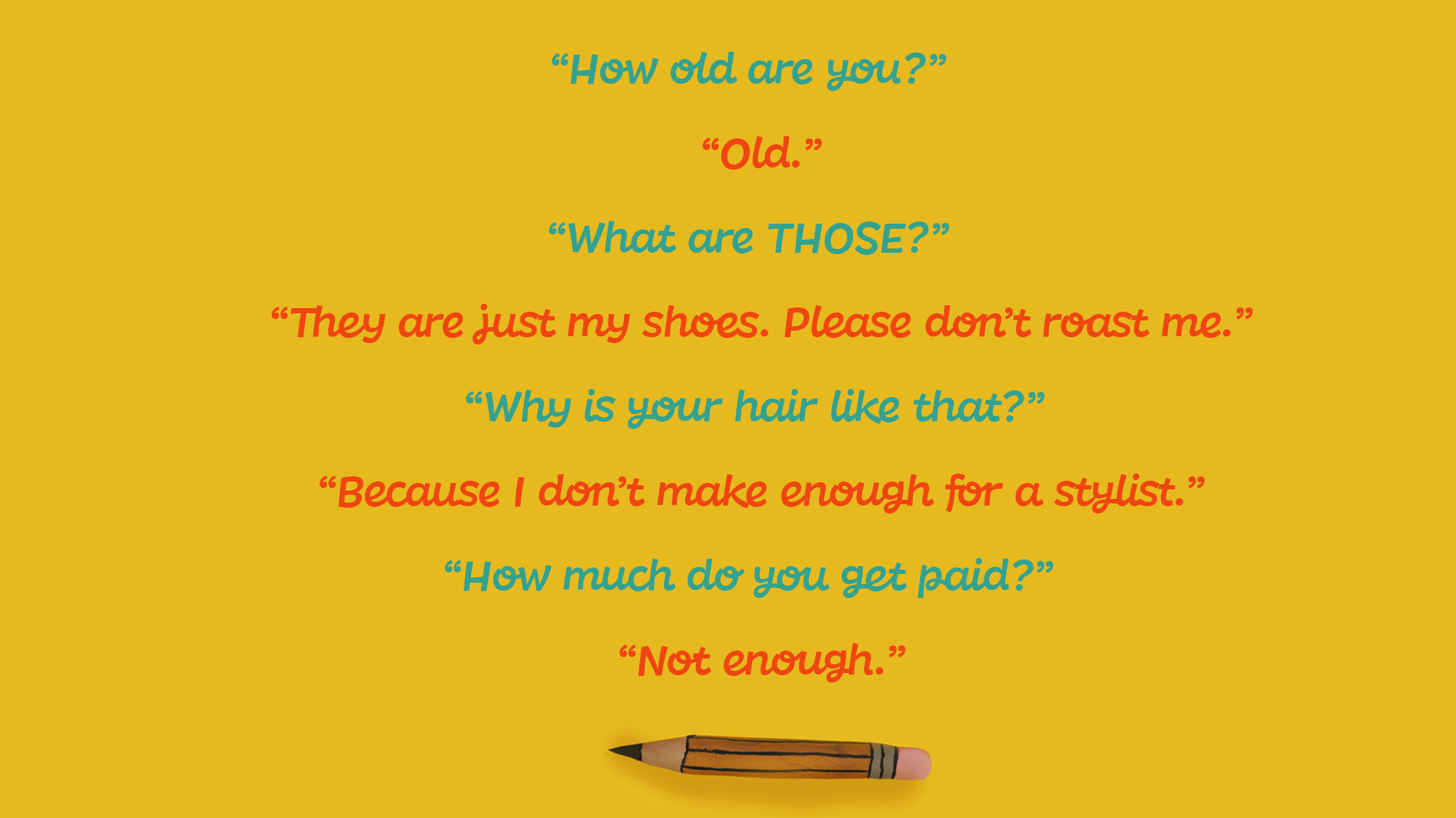

When I started teaching I quickly learned that one of the hardest parts of the job (that no one bothered to tell me) was the part where intrepid students would often ask questions with little regard to relevance to the current topic matter or any concern for personal boundaries. The questions varied and usually went something like this:

The questions never stop, but over time they get more concrete and, as a result, more difficult to answer. The one that I remember most vividly is when I was asked “Why did you become a teacher?” I answered in the most teacher-way I could: “because I wanted to help young people.” Although true, this wasn’t a complete answer.
The forum didn’t allow for the complete response. Simply, I became a teacher because a teacher saved my life. I do not mean figuratively, like “education saved me from ignorance” (though I think it did), but literally. As in: I wouldn’t be alive if I hadn’t been enrolled in a public school. All because a third-grade teacher saw that I was in danger, and triggered the systems in place to protect children like me. That moment changed my trajectory. I entered foster care. I went on to graduate from high school and was the first in my family to go to college.
That is the reason I became a teacher. The system worked exactly as it should have. I now have the opportunity to live a life where I can make active choices about how I want things to turn out and I’ve always credited the system for saving me. But I didn’t realize that I wasn’t the norm—I just got lucky.
Not every foster kid goes on to have the opportunities I went on to have. In fact, most don’t. Children who enter foster care in America are typically six and will stay for two years—with the length of stay increasing with age. The current outcomes for youth who leave foster care at 18 are appalling. These children are twice as likely to be absent from school and three times as likely to be expelled. Just 50% will receive a high school diploma by 18. Only 10% will attend some college and 3% will go on to earn an associate’s or bachelor’s degree.

More locally, the youth homeless survey conducted in Hennepin County showed that 38% of our homeless-youth have had experiences with foster care. However, the worst fact might not be the abysmal data—it might be everything we don’t know about what happens to our foster children after they leave our care. There is no data on how kids fair after a stint in Child Protective Services or after they are adopted. No information regarding life outcomes after they leave the care of the state (either through age or emancipation). There is no other local data readily available on foster youth. The state, county, and the schools haven’t bothered enough to ask. If the adage “that we measure what we value” has any meaning, then I hate to say it but we don’t care about our kids. If we don’t ask how our children are doing, how much can we say that “we care” and have it mean anything?
The idea that these are “someone else’s kids” and therefore do not matter or somehow matter less are at the root of these abysmal outcomes. We have failed to show that we care about our most vulnerable children, and the consequences of that indifference is staggering. These are our children. They became ours when we separated them from their families. We owe them a duty of care just as strongly as we do for the children in our own homes. It shouldn’t come down to just one teacher saving a child; we need all adults and systems working together to make sure that every kid gets what they need and deserve. It shouldn’t be up to luck.

If this upset you, if you do care, or if you disagree, good.
Consider this your call to action.
Here are some ways to help:
1. Support current and former foster care voices by organizing (if you identify as a current/former foster) and contributing. (I have a particular bias for Foster Advocates)
2. Hold the state accountable for data reporting requirements in ESSA/All Kids Count Act (I wrote a little about it here)
3. Become a Guardian Ad Litem (there are currently over 230 kids without guardians in Hennepin County alone)
Contributors